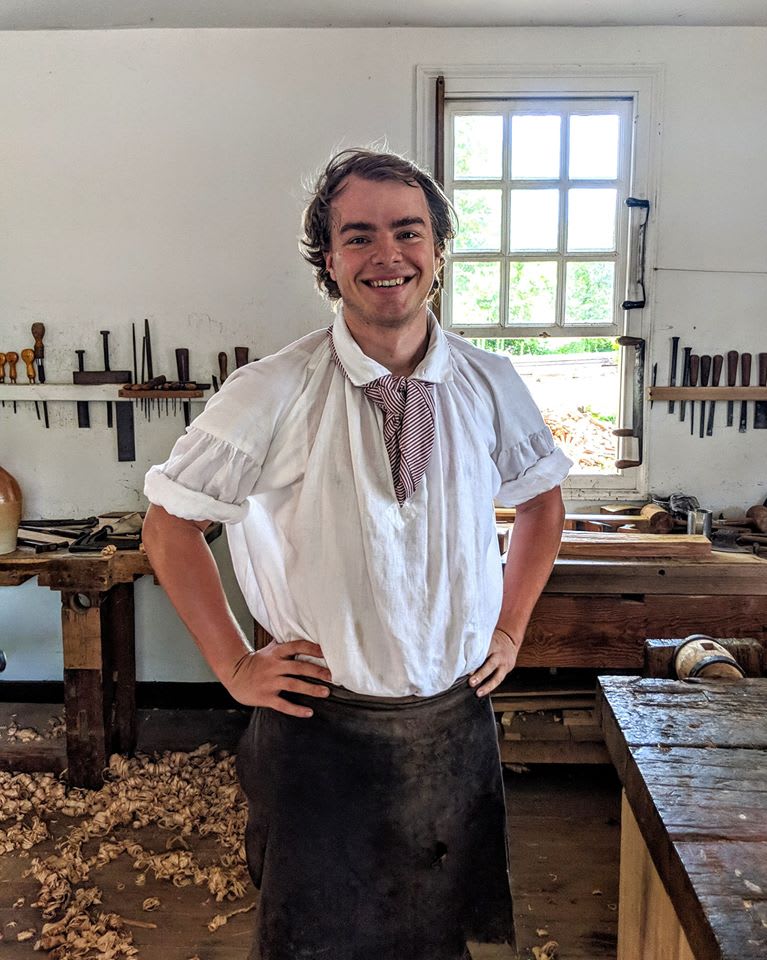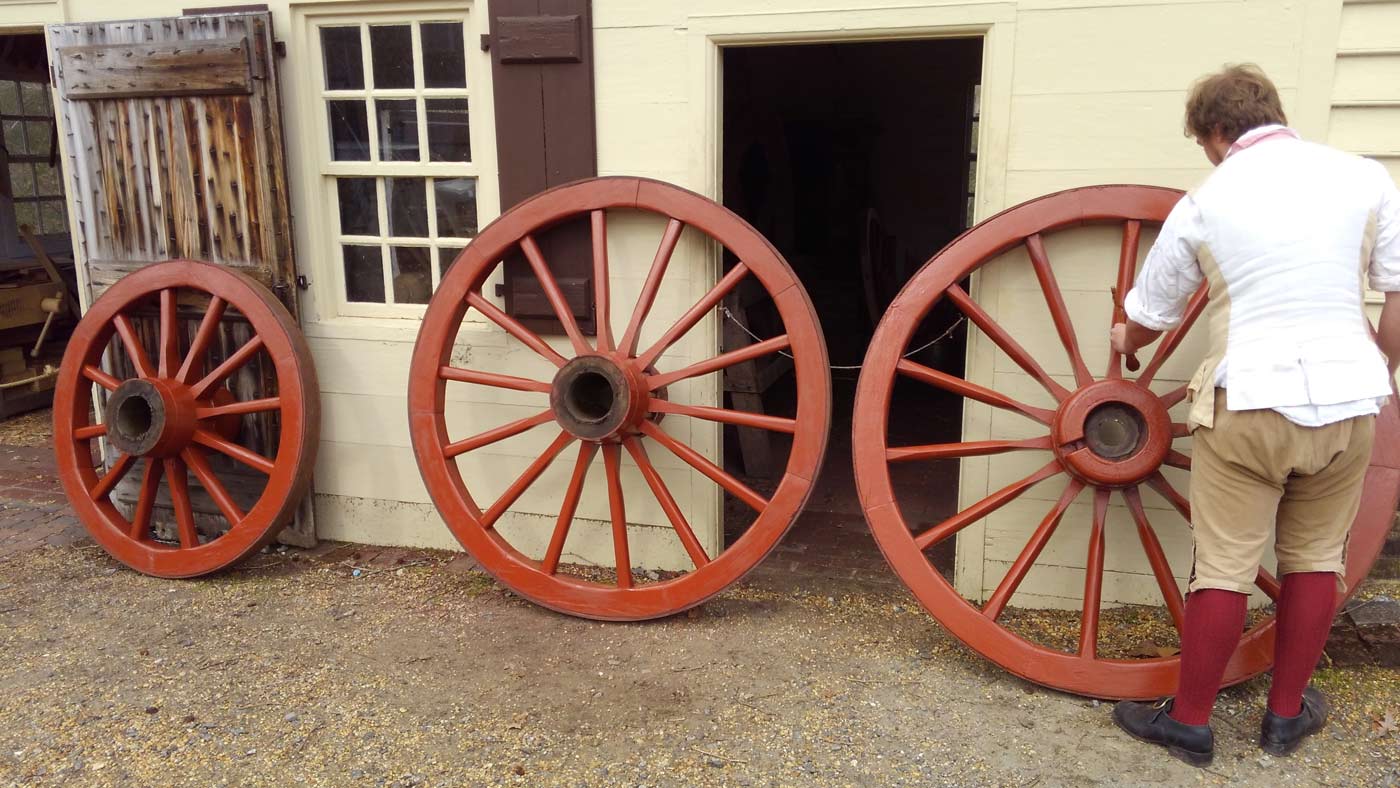Becoming an Historic Trades Apprentice
Among the many things I’ve learned after one year on the job as an apprentice Wheelwright at Colonial Williamsburg, one is the ability to identify the expression on a guest’s face right before they’re about to ask the question, “How did you get this job?” My first clue that such a question has begun to formulate in the guest’s mind typically occurs midway through my interpretation about 18th-century wheelwrighting, when I can tell they’ve stopped hearing what I’m saying and a look of dubious suspicion has come over their face. I believe it is at this point that the guest has realized for the first time that the Millennial standing in front of them pontificating about the differences between carriage and wagon wheels is not just pretending to be in training reproducing 18th-century vehicles, but actually plans to spend a career at it. The answer, “I applied online!” is an amusing juxtaposition given the old-timey tools and clothes, but it doesn’t answer the question the guest really wants to know, which is: “What in the world made you decide that you wanted to practice 18th-century wheelwrighting?” It’s a good question, and one I’ve had to re-ask myself every so often during my short time so far at Colonial Williamsburg as I’ve learned more about what it means to be an historic trades apprentice.
I certainly did not spend my childhood daydreaming about one day becoming a wheelwright. I had the much more conventional desire of becoming a superhero and saving the world between the hours of nine and five. In fact, it wasn’t until I stumbled upon the job listing for the position I now hold that I had ever even heard the term wheelwright, let alone knew what it meant to become one. I had recently left my job as a car salesman and was wondering if it would ever be possible to pursue a profession that would allow me to combine a passion for history with an aversion to spending unending hours of research in the library as I had done while earning my undergraduate degree at Virginia Commonwealth University. I recalled a field trip that I had taken to Colonial Williamsburg in the fourth grade, and I remembered how enthralled I had been while immersed in their living history environment. My experience that day surrounded by the tradespeople, the interpreters, and the incredible architecture helped instill in me a thrill and excitement that I still get when studying American history which I never could have discovered from reading and lectures alone. I decided to check out their website, thinking maybe they would have a job I could take on for the summer as a tour guide while I figured out what it was I really wanted to do with my life. That was when I saw the posting for a Wheelwright’s Apprentice. “What the heck is that?” I thought to myself.
As I looked into what the job of an historic trades apprentice actually entailed, I was shocked to see some of the job requirements. Seven years of training! Building carts and wagons by hand? Who in their right mind would choose to do that for a living!? I immediately exited the webpage and wrote off the whole affair as a waste of time. There was no way I could spend seven years training at a job that doesn’t even exist anymore! After all, think of the other great jobs that I could have with that amount of training: doctor, lawyer, accountant, etc. At that moment I was going through the exact same thought process that I have since seen in so many of our guests. I quickly realized that I definitely did not want to become any of those things, and the thought of spending a career preserving a small sliver of the American experience through living history interpretation no longer seemed so ridiculous. Despite having no prior woodworking, museum, or 18th-century wheelwrighting experience of any kind, I went ahead and applied for the job. In my cover letter I detailed much of what I have shared here, and hoped that what I lacked in experience I could make up with dedication, enthusiasm and a willingness to learn. I was fortunate enough to be brought in for an interview and the rest, as they say, is history.

Lastly, I want to point out that my experience, like my job, is unique. Many of the wonderful tradespeople at Colonial Williamsburg were highly accomplished and/or internationally recognized in their crafts before beginning their careers here. I highly encourage everyone who has read this far to visit Colonial Williamsburg’s Historic Area and speak with as many of our staff as possible to discover their own amazing stories. Come stop by the Deane Wheelwright’s Shop and I’ll be more than happy to tell you about the difference between those carriage and wagon wheels!
Michael Nikolich is an Apprentice Wheelwright and graduate of Virginia Commonwealth University. When not at work he enjoys watching movies, snowboarding, and the occasional cross-country road trip.
